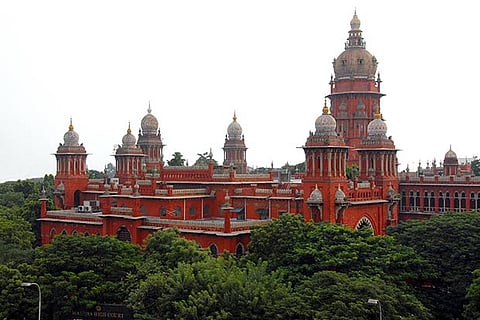

Chennai
The Bill considers the vital role played by jallikattu in ensuring survival and continuance of native breeds. The Bill titled “Tamil Nadu Prevention of Cruelty to Animals (Conduct of Jallikattu) Rules, 2017” deals with procedure for conduct of jallikattu, examination of bulls, arena, bull run area, bull collection yard and setting up of gallery.
Among the procedures charted for conduct of jallikattu, insistence has been laid on that aspect that any individual, organisation or group intending to conduct jallikattu in such places and on such day as be notified by the government under clause (dd) of section 2 of the Prevention of Cruelty to Animals Act, 1960 shall inform in writing to the Collector of the District.
Further, the organisers shall also obtain prior permission from the respective Collectors for the persons as well as their bulls for participating in the jallikattu event and the Collector shall ensure that the names and other particulars of the participants in the jallikattu are registered. The rules also insist that the Collector shall form a ‘committee on jallikattu’ comprising of officials from revenue, animal husbandry, police and health departments to oversee and monitor the conduct of jallikattu and ensure that the jallikattu is conducted in conformity with the rules.
While the organisers are directed to ensure that the bulls are put to proper test and that no performance enhancement drugs, irritants are administered to the bulls in any form, the rules in the arena classification has sought the bulls to be embraced by the participants within the 50 square meter area. It had also been stated that the participants shall not be permitted to stand in front of the bulls as they enter the arena.
They shall not be permitted to block the exit way for the bulls and that the participants shall be permitted only to embrace the bulls by their hump and run along with the bull for 15 meters or for 30 secs or sustain three jumps of the bull. The participants shall not hold on to the tail, horns using their hands or restrict the movement of the bulls by holding on the bulls’ legs.
Also, the participants violating these guidelines shall be liable to be debarred from participating further in the event. The 15-meter area shall be liberally strewn with coir pith for cushioning effect to prevent any injuries to the bulls or participants.
Rajiv case: 2 Lankan convicts await premature release
The Madras High Court has sought to know as to whether the two Sri Lankan nationals- Robert Payas and Jayakumar- undergoing life imprisonment in the Rajiv Gandhi assassination case are among the 180 who are proposed to be released on the eve of Republic Day.
When the Habeas Corpus case moved by the duo in 2012 came up for hearing on Monday before the division bench comprising Justice M Jayachendran and Justice T Madivanan, the additional public prosecutor assured the court to obtain the details as to whether they figure in the list of 180 persons due for premature release this year. The bench on recording the submission, posted the case for further hearing to January 30.
Robert Payas and Jayakumar, in separate petitions, had contended that their detention in prison beyond 20 years was illegal and violative of their fundamental right under Article 21 of the Constitution of India. They had also contended that the date of release of prisoners sentenced to life, has to be calculated as per rules 236 and 341 of Tamil Nadu Prison Rules, 1983. Both the rules specify that imprisonment for life for calculation of normal date of release shall be deemed to be sentences of imprisonment for 20 years, they said.
Payas and Jayakumar were arrested on June 10 and 11 respectively in 1991. A designated court had in 1998 imposed death penalty on 26 persons including Payas and Jayakumar, which was later converted to life imprisonment by the Supreme Court on May 11, 1999.
Visit news.dtnext.in to explore our interactive epaper!
Download the DT Next app for more exciting features!
Click here for iOS
Click here for Android